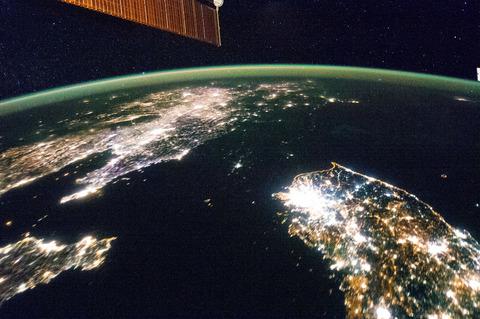Our official English website, www.x-mol.net, welcomes your feedback! (Note: you will need to create a separate account there.)
The future is how: Urbanising the Korean peninsula for imagining post‐fossil cities in East Asia
The Geographical Journal ( IF 3.384 ) Pub Date : 2020-11-17 , DOI: 10.1111/geoj.12368 Jin‐Tae Hwang 1
The Geographical Journal ( IF 3.384 ) Pub Date : 2020-11-17 , DOI: 10.1111/geoj.12368 Jin‐Tae Hwang 1
Affiliation

|
In Maarten Hajer and his colleagues' insightful papers (Hajer & Pelzer, 2018, Energy Research and Social Science, 44, 222; Hajer & Versteeg, 2019, Territory, Politics, Governance, 7, 122) and the following sharp commentaries, we confirmed that critical scholars in the field of urban studies and energy research recognise that “the future is now” for imagining post‐fossil cities and dismantling the current unsustainable energy regime gobbling up fossil fuels. This commentary briefly shows an example of a more practical and concrete illusion that includes how to transform existing, unsustainable, fossil fuel‐based urbanisation into a more sustainable, post‐fossil future in the spatial context of East Asia, at a less abstract level. Ultimately, it emphasises that the spectre of Henry Lefebvre should be haunting more regions outside of the First World.
中文翻译:

未来是这样的:将朝鲜半岛城市化,以想象东亚的化石后城市
在马腾哈耶尔和他的同事们有见地的论文(哈耶尔&佩尔泽,2018年,能源研究和社会科学,44,222;哈耶尔&Versteeg,2019年,领土,政治,治理,7(第122页)和随后的尖锐评论,我们确认了城市研究和能源研究领域的批判学者认识到“未来就是现在”,以想象化石后的城市,并拆除目前不可持续的能源体制,吞噬化石燃料。这篇评论简要地展示了一个更实际,更具体的幻想的例子,包括如何在不那么抽象的水平上,将现有的,不可持续的,基于化石燃料的城市化转变为东亚空间背景下的一个更可持续的,化石后的未来。最终,它强调,亨利·列斐伏尔的幽灵应该困扰着第一世界以外的更多地区。
更新日期:2020-11-17
中文翻译:

未来是这样的:将朝鲜半岛城市化,以想象东亚的化石后城市
在马腾哈耶尔和他的同事们有见地的论文(哈耶尔&佩尔泽,2018年,能源研究和社会科学,44,222;哈耶尔&Versteeg,2019年,领土,政治,治理,7(第122页)和随后的尖锐评论,我们确认了城市研究和能源研究领域的批判学者认识到“未来就是现在”,以想象化石后的城市,并拆除目前不可持续的能源体制,吞噬化石燃料。这篇评论简要地展示了一个更实际,更具体的幻想的例子,包括如何在不那么抽象的水平上,将现有的,不可持续的,基于化石燃料的城市化转变为东亚空间背景下的一个更可持续的,化石后的未来。最终,它强调,亨利·列斐伏尔的幽灵应该困扰着第一世界以外的更多地区。


























 京公网安备 11010802027423号
京公网安备 11010802027423号